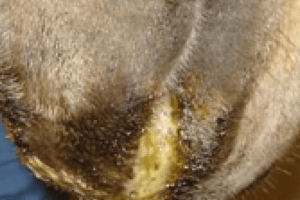Podcast
Questions and Answers
Which drug is commonly used to treat anaphylactic shock?
Which drug is commonly used to treat anaphylactic shock?
- Antibiotics
- Epinephrine (correct)
- Beta-blockers
- Blood transfusion
What is typically used to treat hypovolemic shock?
What is typically used to treat hypovolemic shock?
- Antibiotics
- Blood transfusion (correct)
- Epinephrine
- Pain relievers
Which treatment is appropriate for cardiogenic shock?
Which treatment is appropriate for cardiogenic shock?
- Epinephrine
- Antibiotics
- Heart surgery (correct)
- Insulin
What type of shock is treated with antibiotics?
What type of shock is treated with antibiotics?
Blood is considered a precious component for which of the following reasons?
Blood is considered a precious component for which of the following reasons?
What is a common complication associated with untidy wounds?
What is a common complication associated with untidy wounds?
Which of the following is NOT a cause of untidy wounds?
Which of the following is NOT a cause of untidy wounds?
What type of injuries may be present with untidy wounds?
What type of injuries may be present with untidy wounds?
Which of the following accurately describes untidy wounds?
Which of the following accurately describes untidy wounds?
What is one of the overall aims of the General Surgical module?
What is one of the overall aims of the General Surgical module?
What is a characteristic feature of untidy wounds?
What is a characteristic feature of untidy wounds?
By the end of the General Surgical module, students are expected to be able to:
By the end of the General Surgical module, students are expected to be able to:
Which of the following is NOT an expected outcome of the General Surgical module?
Which of the following is NOT an expected outcome of the General Surgical module?
What type of disorders does the General Surgical module primarily focus on?
What type of disorders does the General Surgical module primarily focus on?
What is a key component of knowledge that students are expected to gain from the General Surgical module?
What is a key component of knowledge that students are expected to gain from the General Surgical module?
What is a potential consequence of severe dysplasia?
What is a potential consequence of severe dysplasia?
Which condition is associated with dysplasia in colonic epithelium?
Which condition is associated with dysplasia in colonic epithelium?
Where can squamous dysplasia occur due to chronic exposure in smokers?
Where can squamous dysplasia occur due to chronic exposure in smokers?
What characterizes early forms of dysplasia?
What characterizes early forms of dysplasia?
Which of the following is NOT typically related to dysplasia progression?
Which of the following is NOT typically related to dysplasia progression?
Which type of sarcoma is characterized as well differentiated?
Which type of sarcoma is characterized as well differentiated?
Which type of sarcoma falls under the category of poorly differentiated?
Which type of sarcoma falls under the category of poorly differentiated?
From which types of tissues do neural tissue tumors arise?
From which types of tissues do neural tissue tumors arise?
Which of the following is an example of a well differentiated sarcoma?
Which of the following is an example of a well differentiated sarcoma?
Which of the following does not represent a type of neural tissue?
Which of the following does not represent a type of neural tissue?
Flashcards are hidden until you start studying
Study Notes
Overall Aims of the Course
- Students should understand the essential knowledge relating to surgical disorders and their management.
Management of Anaphylactic Shock
- Epinephrine and other medications can be used for treatment.
Management of Hypovolemic Shock
- Blood transfusions are used for replacement of lost blood volume, treating hypovolemic shock.
Management of Cardiogenic Shock
- Treatments for cardiogenic shock may include medications, heart surgery or other interventions.
Management of Septic Shock
- Antibiotics are used for treating septic shock.
Blood Transfusion
- Blood is a vital component for human beings.
Untidy Wounds
- These occur due to crushing, tearing, vascular injury, multiple wounds, and burns.
- They can lead to underlying bone fractures.
- Risks of wound dehiscence, infection and delayed healing are common.
Early Forms of Dysplasia
- May be reversible.
- Severe dysplasia has a high risk of becoming malignant.
Examples of Dysplasia
- Dysplasia arising in colonic epithelium caused by chronic ulcerative colitis.
- Squamous dysplasia in the bronchi of smokers (found through sputum cytology).
Sarcoma
- Examples of Sarcoma include: fibrosarcoma, osteosarcoma, spindle cell sarcoma.
- Well-differentiated sarcomas are less aggressive.
- Poorly differentiated sarcomas are more aggressive.
Neural Tissue Tumors
- These arise from nerve cells, sheaths and supporting tissues.
Studying That Suits You
Use AI to generate personalized quizzes and flashcards to suit your learning preferences.




